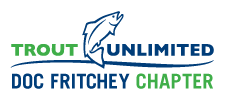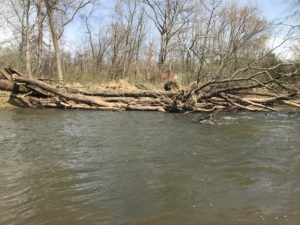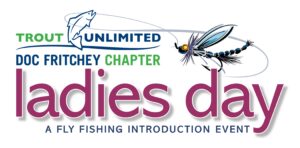As our members certainly know, COVID-19 brought unanticipated disruptions to all aspects of our health and social lives, including to the Doc Fritchey chapter’s annual fund-raising banquet, which was scheduled and cancelled three times. Because the banquet is our chapter’s main source of project funding for the year, the chapter’s leadership knew we had to be resourceful as to what to do to raise much-needed dollars for conservation.
The first of the scheduled banquet dates was in late March, and the state mandate to cancel all social gatherings came only a week before our banquet. Everything for the banquet was ready, with the program at the printer, all arrangements finalized with the Holiday Inn, all prize items sorted, labelled, and ready for delivery to the banquet site, and with a volunteer auctioneer ready to help raise money for Doc Fritchey’s conservation projects. Sadly, this date was postponed. After attempting to schedule a banquet two more times, we recognized this event simply could not be safely conducted in 2020.
Realizing that trying to host an in-person fund-raising event was not possible this year, we turned to an online auction as an alternate way to successfully achieve our chapter’s financial goals.
This past summer a subcommittee (Online Auction Committee) was formed from the original Banquet Planning Committee, and our investigation as to how to accomplish this was started. Bob Pennell and Rich DiStanislao, the chapter’s secretary and vice president, agreed to chair the sub-committee.
Because the Donegal Chapter in Lancaster had just conducted a successful online auction, we contacted them (Tom Hall, specifically) and they gave us starting advice and provided contact information for TU National’s recently introduced fundraising platform.
Working via Zoom, emails, texts, and telephone, (rarely meeting in-person) the subcommittee reviewed TU National’s demonstration product and made recommendations as to how we could customize their template to our needs. Andy Link, our chapter’s internet wizard, modified the TU template, sent it to the subcommittee for testing and for comments, and then reconfigured it again to get us what we wanted. Bob Pennell took photos of all the items we decided to include in our online auction, and Andy incorporated these into the final product.
Trip McGarvey set up the financial details that would be the simplest and easiest way for participants to use the auction site. The subcommittee members monitored the development of our new auction website and we developed our own listing of “Q&A” to help minimize bidding questions/concerns. We had many smaller decisions to make, such as how the items would reach successful bidders, how bidders would be notified of success, etc.
We also knew that we needed to promote the generosity of our chapter’s 2020 banquet sponsors, so we prominently displayed those sponsors on the auction website. All in all, it was a fitting way to work with our sponsors to reach out to the public well beyond a printed program.
We decided the online auction should span a period of 10 days, done in the “English” method of bidding (actual bids to take place, not automatic raising). It was exciting to watch our initial effort, and of course to make note of “lessons learned” as to what was done well and what could be done better in the future.
Results:
- The overall gross income was $6,556.
- 43 of the 48 items offered were sold.
- There were 26 successful bidders for those 43 items.
- 13 of those successful bidders bought more than 1 item.
- The bid prices captured 78.3% of the fair market value overall.
For comparison, at our 2019 Annual Banquet, the silent and live auctions each brought in approx. $4,000.
Now that we have successfully raised funds for the chapter’s ongoing conservation efforts through an online auction, we are now beginning the planning process for a March 2021 in-person, fund-raising banquet at the Holiday Inn. Certainly, there are still plenty of questions about whether or not that plan is feasible, but we are optimistic, for lots of reasons. Mostly because we need to see each other, tell lies/fishing stories with a cold beer in our hands, and because we need to continue to raise funds for an ever-increasing number of conservation projects in Dauphin and Lebanon Counties.


